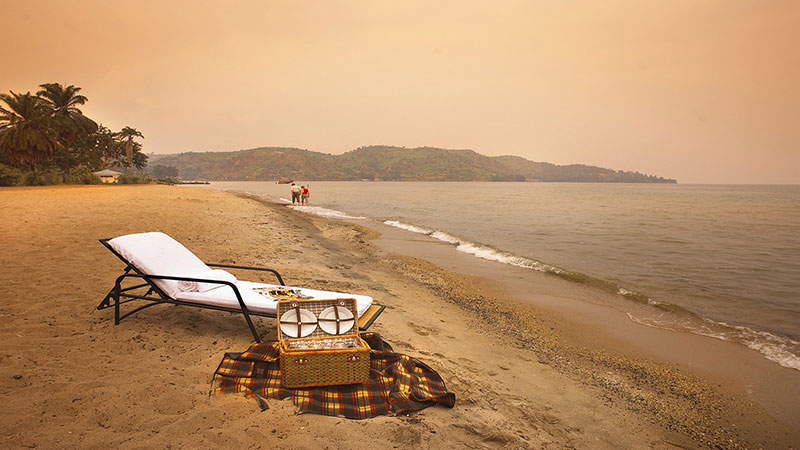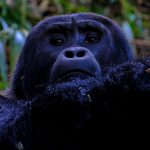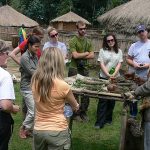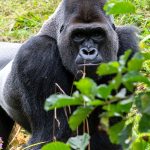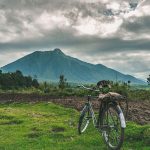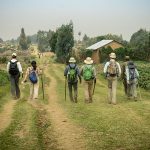Lake Kivu is one of the African Great Lakes, divided into two fingers that run along the Democratic Republic of Congo’s border with Rwanda, home to the world’s 10th-largest inland island. It lies on the border between the Democratic Republic of the Congo and Rwanda, and is in the Albertine Rift, the western branch of the East African Rift. Lake Kivu empties into the Ruzizi River, which flows southwards into Lake Tanganyika. Lake Kivu in the west of Rwanda is surrounded by magnificent mountains and has deep emerald, green waters covering a surface area of 2,700 km2. It is Rwanda’s largest lake and the sixth largest in Africa.
Lake Kivu is full of promise for Rwanda’s future. It is saturated with methane gas that, if extracted properly, can be used to power a country where only 20 percent of residents have electricity. The real joy of this area is driving between the towns, villages and it’s a lovely option for a slower route between Nyungwe Forest National Park and Volcanoes National Park. The road gently curves back and forth as it weaves through hills and mountains beside the lake from Gisenyi all the way to Cyangugu, with Kibuye almost at its center point. Every corner produces another gorgeous stunning view.
Eucalyptus trees line the road, while every inch of the hills seems to be terraced with bananas, giving a great overview of the real village life. Villagers smile and wave at the passerby, and children constantly call out “Abuzungu!” as you drive past (the Kinyarwanda term for white people, like “Muzungu” in Swahili). You’ll end up with hands tired from waving and feel like royalty at the end of the trip! This will give you a taste of African way, and love, as you enjoy the stunning ride across the countryside.
Gisenyi (Rubavu)
Gisenyi (also referred to by its new name Rubavu) is a large town spread over several hills on the northern edge of Lake Kivu. Once a colonial beach resort of note, Gisenyi’s waterfront is lined with fading old mansions, some decent hotels including some of international standard, and trendy bars on the lakeshore, ideal for a sundowner cocktail. Nearby Rubona is also home to some pretty lakeside hotels.
What to do in Gisenyi (Rubavu)
There is a pleasant public beach on Gisenyi’s lakeshore, but it can get quite busy, particularly at weekends. Some hotels have private beaches and water sport options. Once a colonial beach resort of note, Rubavu’s waterfront is lined with fading old mansions, hotels and trendy bars on the lakeshore, ideal for sundowner cocktails.
Kibuye (Karongi)
About 100km south of Gisenyi, Kibuye (also known by its new name Karongi) is probably the prettiest of Lake Kivu’s towns. It’s a verdant, tropical spot surrounded by hills covered in eucalyptus and pine. If you’re visiting in August, you may catch thousands of yellow-billed kites here flying over Lake Kivu on their annual migration. Most of Kibuye’s hotels are in beautiful locations overlooking the lake and facing the sunset.
What to do in Kibuye (Karongi)
From Kibuye (Karongi) you can take boat trips on Lake Kivu to nearby islands: Napoleon Island with its colony of fruit bats and Amahoro Island, which became popular locally for the sundowner bar set up on the island seasonally! It’s also possible to visit Kibuye’s genocide memorial church, with brightly colored stained-glass windows, in a quiet location on a hill above Lake Kivu. Despite a tragic history, it’s a place for peaceful contemplation.
Cyangugu (Rusizi)
At the southern end of Lake Kivu, Cyangugu (pronounced ‘Shangugu’ – its new name of Rusizi is easier to pronounce!) is an old border town whose fading façades tell of its past as a vital trading gateway. It makes for a convenient base if you want to combine a stay on Lake Kivu with Nyungwe Forest National Park, which is only 45 minutes away, although there are limited hotel options.
Gisenyi (Rubavu) and Cyangugu (Rusizi) are both close to the DRC border so it’s wise to check with your tour operator before visiting either. From Rubavu in the north, the Congo Nile Trail extends 227 kilometers of breathtaking landscapes all the way to Rusizi in the south of Lake Kivu. The trail gently curves back and forth as it weaves through hills and mountains beside the lake with eucalyptus trees lining the road and every inch of the hills seemingly terraced with bananas.
Rwanda’s land is famously fertile, and the area around Lake Kivu is no exception; among the goods sold at a local Monday afternoon market were homegrown bananas, sweet potatoes, tomatoes, kale, chard, and small, silvery fish called sambaza that made deliciously salty snacks when fried. The market visit will give you a great experience of the taste of the cultural life of the country, as you enjoy how business is carried out in a local way.
For adventurous travelers, an exciting way to explore Rwanda is a kayaking tour on Lake Kivu, or mountain biking or hiking one of the 6 off-the-beaten path stages of the spectacular Congo Nile Trail. Lake Kivu has also offered a relaxing moment to clients who are seeking total relaxation after gorilla trekking safari adventure from either Bwindi Impenetrable national park or Volcanoes National Park, and other clients from Nyungwe National Park, after doing canopy walk and chimpanzee trekking adventure experience.
Most clients doing both visits to Nyungwe National Park and Volcano national park, Lake Kivu is often in cooperated in their itinerary with a boat ride or Kayaking adventure being added as part of the visit to this great lake to explore the hidden beauty to this great lake with an overnight here. Number of hotels and lodges do exist here, ranging from luxury lodges such as Lake Kivu Serena Hotel, Paradise Kivu, to mid-range facilities such as Paradise Malahide, Comrand lodge up to budget facilities.
Lake Kivu, especially Gisenyi has become one of the weekend gate ways, as more people from Kigali, travel over to seek a total relaxation here to experience a beach life in these clear sand and water. Today, Lake Kivu, has become part of most tour operators itinerary planning, with a boat ride to Napoleon Island being the major state of attraction, and visit the evening local market, to experience the how local merchandise is practiced in local settings.
